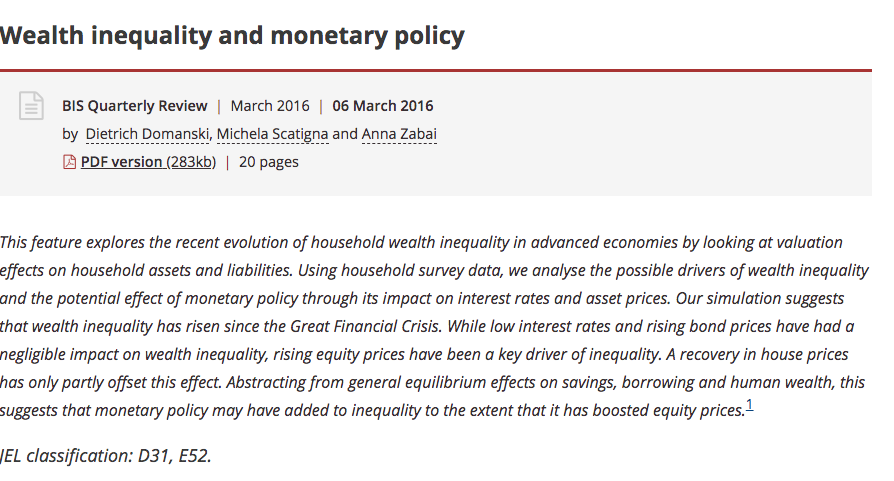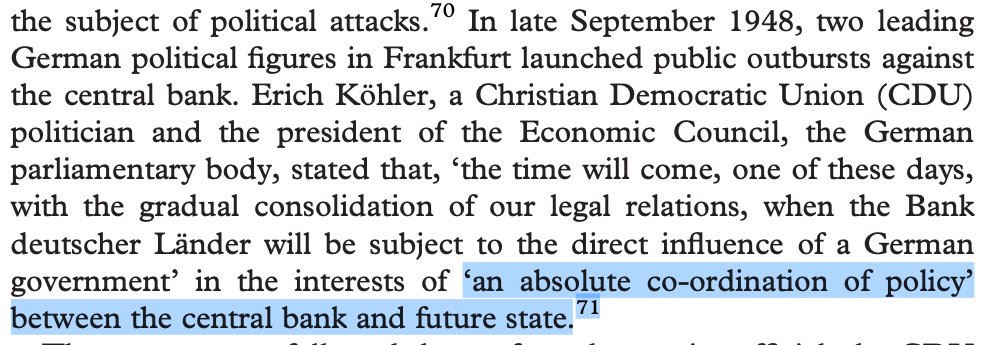
new evidence that professors of finance should come out of their monetarist closets not to scream inflation, but to learn about banking ft.com/content/653611…
Quantity Theory of Money is wrong on many levels, but nowhere more so than in assuming banks dont have the power to create money (money supply exogenously controlled by central bank via reserve multiplier).
richmondfed.org/~/media/richmo…

richmondfed.org/~/media/richmo…


The monetarist take on coming inflation shock:
1. before Lehman, banks didnt hold excess reserves, but lent them into money market.
2. They could absorb QE-injected reserves without increasing credit.
3. COVID19 reserve creation finally increased bank deposits = inflation
1. before Lehman, banks didnt hold excess reserves, but lent them into money market.
2. They could absorb QE-injected reserves without increasing credit.
3. COVID19 reserve creation finally increased bank deposits = inflation
every single one of these steps in the causal chain is wrong, no small feat for a short FT piece.
1. 'before Lehman, banks didnt hold excess reserves, but lent them into money market' = wrong
Banking system either has excess reserves in aggregate, or not. Pre-Lehman, banks used tri-party repo to economise on reserves &run away from Fed' balance sheet
ft.com/content/4da3a0…
Banking system either has excess reserves in aggregate, or not. Pre-Lehman, banks used tri-party repo to economise on reserves &run away from Fed' balance sheet
ft.com/content/4da3a0…
2. 'They could absorb QE-injected reserves without increasing credit' = wrong
This is money multiplier reasoning, where central banks inject reserves & presto, banks increase credit.
Here is Bank of England's view on this: banks dont multiply up central bank money
This is money multiplier reasoning, where central banks inject reserves & presto, banks increase credit.
Here is Bank of England's view on this: banks dont multiply up central bank money

3. 'COVID19 reserve creation finally increased bank deposits = inflation' - also wrong
QTM says excess demand for goods& services, fuelled by excessive money growth, will lead to inflation when at full employment.
hard to believe we are at full employment.
QTM says excess demand for goods& services, fuelled by excessive money growth, will lead to inflation when at full employment.
hard to believe we are at full employment.
the irony, of course, if that if somehow we get inflation, you know which bondholder wont care, and can take infinite losses 



Ahem, Friedman lost in Euroland
https://twitter.com/fwred/status/1351468419158319107?s=19
• • •
Missing some Tweet in this thread? You can try to
force a refresh










